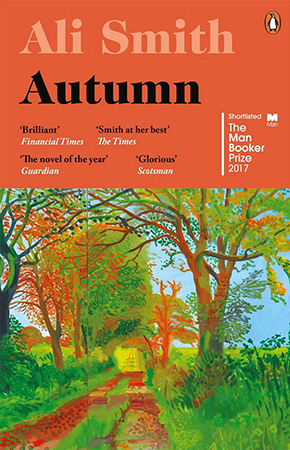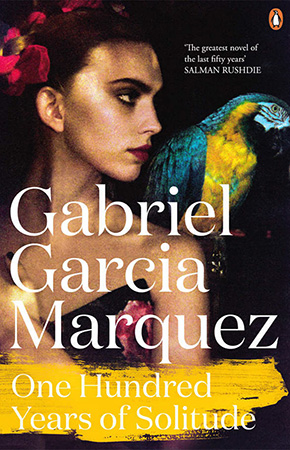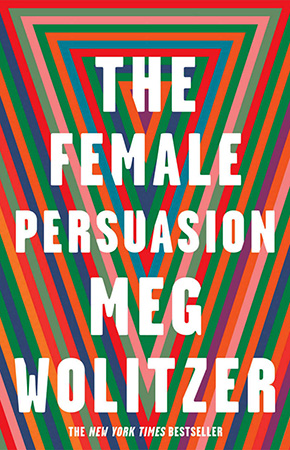Books you should read over the Christmas break
Take full advantage of having some time off this Christmas and dive into one of these books recommended by students from all over the world
Share
A month can feel like a long time to have off over the winter break, but there are plenty of ways that you can fill your time.
One of them is catching up on all those books that you keep meaning to read but haven’t had time to, or discovering something completely new. If you need some inspiration on where to start, here are some recommendations for books for students to read over the Christmas break, given by other students.
Autumn, by Ali Smith
In Autumn, Ali Smith manages the different threads of junior lecturer Elisabeth Demand’s life with rare skill. Elisabeth’s story is deftly woven into a backdrop of the heated aftermath of the EU referendum in the late summer and autumn of 2016. Elisabeth goes home to visit her mother but finds solace and refuge sitting with and reading to their old, odd neighbour Daniel, who drifts in his old age. Trapped in his disintegrating body, his mind is now free to dream.
The dreamworld is both playful and melancholic. Smith makes powerful parallels between this world, Elisabeth’s mother’s fantasy television-show-participant world, Elisabeth’s thesis on little-known and ignored female pop artist Pauline Boty, and her memories of her enlightening (and illicit) conversations with Daniel through the years – all of which suggest that it is love, not hate, that sustains and lifts us. Right now, this book is essential reading, whatever the outcome of the current political wrangling.
Anna Tuggey is a part-time PhD student in literature and museum studies at the University of Sussex, UK

Get Some Headspace, by Andy Puddicombe
This is a must-read while embarking on your university journey. It teaches you essential breathing practices for a clearer state of mind which will come in handy during your busy university life. For the breathing exercises to be successful it is imperative that they are practised while reading the book. An important takeaway is that our thoughts are not us, they are simply passing clouds in our head which we can choose to sit with or let go of.
Becky Bradley is a geography and psychology student at the University of British Columbia, Canada
How to Win Friends and Influence People, by Dale Carnegie
An unoriginal recommendation, but there’s a reason Dale Carnegie’s 1936 bestseller is still shifting copies eight decades on. It’s not something students would typically turn to, as most of the advice and techniques offered relate to the workplace, but I for one wish I had read it much earlier in my student career.
Of course the book should be read with a pinch of salt, as it’s written for a male-dominated work environment that doesn’t exist in the same way these days, but it’s still worth the read. From coping with colleagues (fellow students) who don’t pull their weight to navigating the seemingly unending politics of extracurricular societies, How to Win Friends and Influence People carries a lot of life lessons that you won’t find in your textbooks.
Elsa Maishman is a master’s student in journalism at Aarhaus University, Denmark
One Hundred Years of Solitude, by Gabriel García Márquez
“Many years later, as he faced the firing squad, Colonel Aureliano Buendía was to remember that distant afternoon when his father took him to discover ice.” One Hundred Years of Solitude follows the Buendía family across the generations as they rule the fictional town of Macondo, a Colombian yet universal locale. Pablo Neruda called it the greatest work in Spanish after Don Quixote, and William Kennedy said it was required reading for the entire human race. It took more than 20 years to write and it is a novel that can be read over and over again.
Any student who reads One Hundred Years of Solitude doesn’t just learn about the complexities of life but about the craft of writing, meticulous research, unwavering discipline and life-long dedication as a writer.
Subhas Yadav is a PhD student in comparative literature at the University of Hyderabad, India

The Female Persuasion, by Meg Wolitzer
Imagine it’s your freshman year of college. You meet a famous second-wave feminist (think Gloria Steinem) in the bathroom. You cannot know it then, but your fates are intertwined. This is just how Greer Kadetsky, the novel’s protagonist, is first drawn in by Faith Frank.
The Female Persuasion examines the triumphs and trials familiar to students as they explore their passions and come into their own, while struggling to balance work, love and friendships. This book will feel especially relevant to anyone who identifies as a feminist or is interested in a career in the non-profit space.
Katherine Logan is a writing seminars major at Johns Hopkins University, US

Returning to Reims, by Didier Eribon
Some students might know Didier Eribon as a French sociologist and expert on the works of philosopher Michel Foucault. In his 2013 memoir, Returning to Reims, he reflects on his own life as a working-class gay man and describes the shame he felt as a student among the elite at the Sorbonne.
Central to Eribon’s book is the idea that working-class and first-generation university students often feel such shame about their origins that they are forced into a “class closet” where they hide their backgrounds. Eribon reveals how after arriving in Paris to study, he felt comfortable enough to come out as gay, but then found himself turning his back on his family, who he thought of as rough and unsophisticated.
This book was recommended by a friend who, like me, is gay and was the first in his family to go to university. It is sad and uncomfortable, but also admirably honest. I’d suggest it to anyone who has come to university from a non-traditional background, and who too has experienced those feelings of alienation from both the university world and the people you’ve left behind.
Charlie Pullen is a PhD student in literature at Queen Mary University, UK
Read more: 17 books you should read before (or at) university – chosen by students